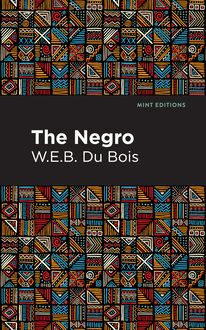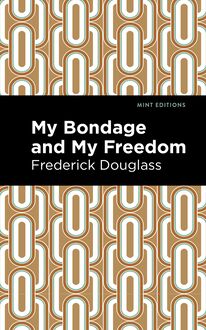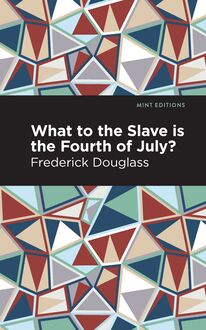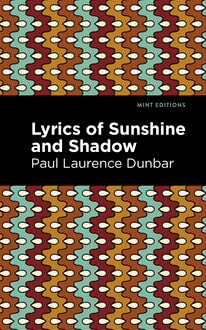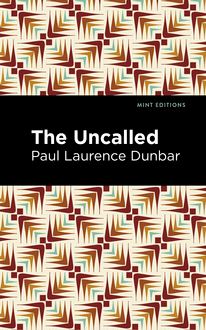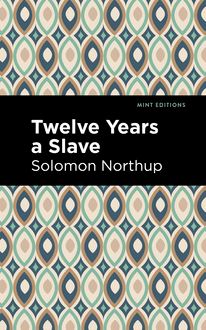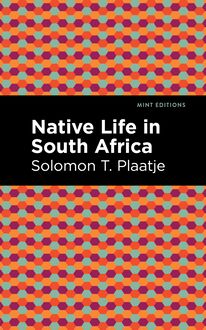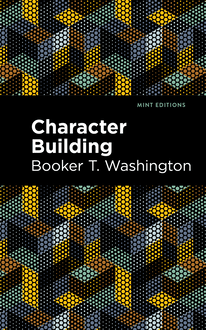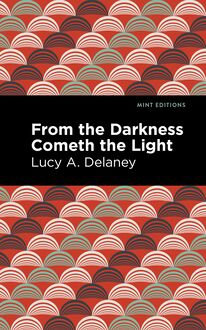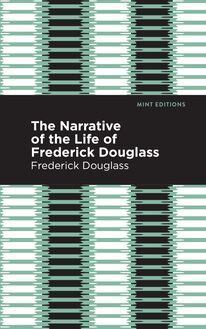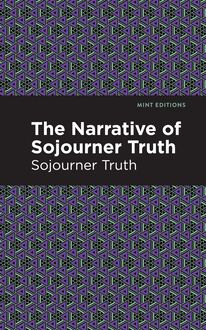-
 Univers
Univers
-
 Ebooks
Ebooks
-
 Livres audio
Livres audio
-
 Presse
Presse
-
 Podcasts
Podcasts
-
 BD
BD
-
 Documents
Documents
-
- Cours
- Révisions
- Ressources pédagogiques
- Sciences de l’éducation
- Manuels scolaires
- Langues
- Travaux de classe
- Annales de BEP
- Etudes supérieures
- Maternelle et primaire
- Fiches de lecture
- Orientation scolaire
- Méthodologie
- Corrigés de devoir
- Annales d’examens et concours
- Annales du bac
- Annales du brevet
- Rapports de stage
La lecture à portée de main
Vous pourrez modifier la taille du texte de cet ouvrage
Découvre YouScribe en t'inscrivant gratuitement
Je m'inscrisDécouvre YouScribe en t'inscrivant gratuitement
Je m'inscrisEn savoir plus
Vous pourrez modifier la taille du texte de cet ouvrage
En savoir plus

Description
Magnolia Leaves (1897) is a collection of poems by Mary Weston Fordham. Published toward the end of her life, Fordham’s only collection appeared in print with an introduction by Booker T. Washington, who saw in its author an undeniable gift which could prove “[t]he Negro’s right to be considered worthy of recognition in the field of poetic effort.” Meditating on such themes as morality, labor, maternity, liberty, and faith, Mary Weston Fordham displays not only a mastery of poetic form, but a hard-earned wisdom and talent for observing life in all its forms. “With hands all reddened and sore, / With back and shoulders low bent, / She stands all day, and part of the night / Till her strength is well-nigh spent.” In “The Washerwoman,” Fordham depicts a woman whose life on earth revolves around labor, for whom life after death means the promise of hard-earned rest, to “be found on the other shore.” While many, if not all, of Fordham’s poems revolve around Christian imagery and themes, some, including “Chicago Exposition Ode,” “Stars and Stripes,” and “Alaska,” reflect on the promise of freedom and liberty in the aftermath of the Civil War. Her poems strive to depict the diversity of nineteenth century America, such as in “Atlanta Exposition Ode,” which celebrates the end of war and the coming together of former slaves, Union soldiers, and Confederate forces alike. “Song to Erin” and “Highland Mary” depict the immigrant experience, while “The Cherokee” mourns the murder and displacement of America’s indigenous peoples. In sixty-six poems, Mary Weston Fordham distils the experience of a lifetime and the wisdom of one who has experienced loss and found the strength to move forward. With a beautifully designed cover and professionally typeset manuscript, this edition of Mary Weston Fordham’s Magnolia Leaves is a classic of African American literature reimagined for modern readers.
Sujets
Informations
| Publié par | Mint Editions |
| Date de parution | 12 octobre 2021 |
| Nombre de lectures | 0 |
| EAN13 | 9781513221533 |
| Langue | English |
Informations légales : prix de location à la page 0,0350€. Cette information est donnée uniquement à titre indicatif conformément à la législation en vigueur.
Extrait
Magnolia Leaves
Mary Weston Fordham
Magnolia Leaves was first published in 1897.
This edition published by Mint Editions 2021.
ISBN 9781513223032 | E-ISBN 9781513221533
Published by Mint Editions®
minteditionbooks.com
Publishing Director: Jennifer Newens
Design & Production: Rachel Lopez Metzger
Project Manager: Micaela Clark
Typesetting: Westchester Publishing Services
T ABLE OF C ONTENTS I NTRODUCTORY P REFACE C REATION S HIPWRECK T HE W ASHERWOMAN T HE S NOWDROP T HE S AXON L EGEND OF L ANGUAGE T HE C HRIST C HILD B ELLS OF S T. M ICHAEL T HE E XILE’S R EVERIE T HE S NOW S TORM M AIDEN AND R IVER C HICAGO E XPOSITION O DE A TLANTA E XPOSITION O DE S TARS AND S TRIPES T O THE E AGLE T HE C RUCIFIXION U RANNE M AGNOLIA T O M Y M OTHER N ESTLE- D OWN C OTTAGE M OTHER’S R ECALL D EDICATED TO THE R IGHT R EV’D D . A . P AYNE O CTOBER T HE D YING G IRL A LASKA O N P ARTING WITH A F RIEND T WILIGHT M USINGS S ONG TO E RIN T HE V ALENTINE L INES TO F LORENCE “ B Y THE R IVERS OF B ABYLON” T HE P EN P ASSING OF THE O LD Y EAR S ONNET TO M Y F IRST B ORN L INES TO— H IGHLAND M ARY T HE C HEROKEE R ALLY S ONG S ERENADE T HE C OMING W OMAN O DE TO P EACE A R EVERIE S UNSET T HE P AST M ARRIAGE F OR W HO? J UNE T RIBUTE TO A L OST S TEAMER A R EQUIEM T HE G RAFTED B UD T O A L OVED O NE T HE N ATIVITY T O THE M OCK- B IRD I N M EMORIAM R EV. S AMUEL W ESTON T O R EV. T HADDEUS S ALTUS T RIBUTE TO C APT. F . W . D AWSON M RS. L OUISE B . W ESTON L INES TO M RS. I SABEL P EACE A LPHONSE C AMPBELL F ORDHAM M R. E DWARD F ORDHAM D EATH OF A G RANDPARENT Q UEENIE T O AN I NFANT S USAN E UGENIA B ENNETT M RS. R EBECCA W ESTON M RS. E . C OHRS B ROWN M RS. M ARY F URMAN W ESTON B YRD
I NTRODUCTORY
I give my cordial endorsement to this little “Book of Poems,” because I believe it will do its part to awaken the Muse of Poetry which I am sure slumbers in very many of the Sons and Daughters of the Race of which the Author of this work is a representative.
The Negro’s right to be considered worthy of recognition in the field of poetic effort is not now gainsaid as formerly, and each succeeding effort but emphasizes his right to just consideration.
The hope, I have, is, that this volume of “Poems” may fall among the critical and intelligent, who will accord the just meed of praise or of censure, to the end that further effort may be stimulated, no matter what the verdict.
The readers I trust will find as much to praise and admire as I have done.
B OOKER T. W ASHINGTON ,
Prin. Tuskegee Normal and Industrial Institute. Tuskegee,
Ala.December 6th, 1897.
P REFACE
T his little volume is launched on the doubtful sea of literature with the hope that the breezes of public opinion may give an impetus to its voyage. I hope that it will be kindly received as simply the harbinger of what may be expected from the generations to come; and shall consider its mission as being fulfilled if it should be the means of arousing and stimulating some of our youth to higher and greater efforts along this line.
Commending it to an intelligent and impartial criticism,
I am, respectfully,
T HE A UTHOR
C REATION
“The heavens declare the glory of God and the firmament showeth his handy work.”
O Earth, adore creative power,
That made and gave to man as dower,
This world of beauty rare,
With hills and vales of verdant green,
With rills and brooks of crystal sheen,
Lovely beyond compare.
O Sun, bright ruler of the day,
When first thy power thou did’st display,
Earth must have shrunk in fear,
When like a meteor burst thy light,
Turning today the long, long night,
With radiance wondrous fair.
Thou Moon, pale sister of the Sun,
When he his daily work has done,
Thou comest forth a queen;
A queen in silvery robe adorned,
With tiara of jewels formed,
Of starry orbs unseen.
Ye twinkling stars of milder light,
Though now ye gleam like sapphires bright,
Across yon azure dome,
The day will dawn, that last dread day,
When from yon heaven you’ll fall away,
And man to Judgment come.
Thunder and Lightnings burst and gleam,
Frightful and fierce to us they seem
Rending the darkened sky.
Like giants tread the thunder’s peal,
The vivid lightnings swiftly steal,
And men in terror fly.
O filmy clouds, of purest white,
With robes of gossamer cased in white,
Ye floating waters pure,
Sometimes to burst in cooling showers,
Sometimes to deluge wintry hours
With your relentless pour.
Thou beauteous Rainbow bursting forth,
With varied hues encircling earth;
The sign to Noah made.
“I place amid the Clouds my Bow”
To show that I will nevermore
Deluge with angry flood.
Mountains and Hills whose snow capped tops
The vast horizon overlooks,
Pyramids strong and sure;
Nor lightnings fierce nor earthquake shock
Can ever sway, for firm as rock
Ye ever will endure.
Thou Ocean vast, oftimes thy breast,
Is calm and still as if at rest,
Like one in quiet sleep;
But soon in anger thou may’st roar,
And madly toss from shore to shore,
And human harvest reap.
Fountains and Rivulets so clear,
That gush amid the valleys fair,
With soft and mellow ring;
As coming forth from glade and wood
Your babblings whisper “God is good,”
Ye make the vales to sing.
Now when all nature swells the song,
When beast and birds the strain prolong,
Shall man from praise refrain?
Then would the rocks and hills proclaim,
All nature crying out for shame,
They who their Maker’s image wear,
Should shout and sing till rent the air
With rhapsodies sublime.
S HIPWRECK
Night and a starless sky,
Ship on wild billows tost,
With tattered sails and opening seams,
And deck bestrewn with falling beams,
Swift plunging to her doom.
Red lightnings round her flash,
Loud thunders crash and roar,
And the noble vessel mounts the crest
Of the reeking waves, then sinks to rest
Mid carnival of woe.
The Petrel soars aloft,
Wailing her hymn of death,
And the dirge like sounds pierce the blackened sky,
While the crew send forth one anguished cry,
Sinking to lowest depth.
Some ships go out to sea
That never more return,
Souls that from heaven in infancy come,
Tarnished and ruined by sin may become,
Like the Dove to the Ark they never return,
But sink as ship to doom.
T HE W ASHERWOMAN
With hands all reddened and sore,
With back and shoulders low bent,
She stands all day, and part of the night
Till her strength is well-nigh spent.
With her rub—rub—rub,
And her wash, rinse, shake,
Till the muscles start and the spirit sinks,
And the bones begin to ache.
At morn when the sunbeams scatter
In rays so golden and bright,
She yearns for the hour of even,
She longs for the restful night.
Still she rubs—rubs—rubs,
With the energy born of want,
For the larder’s empty and must be filled,—
The fuel’s growing scant.
As long as the heart is blithesome,
Will her spirit bear her up,
And kindness and love imparteth a zest
To sweeten hard life’s bitter cup.
But to toil—toil—toil,
From the grey of the morn till eve,
Is an ordeal so drear for a human to bear,
Which the rich can hardly conceive.
What part in the world of pleasure?
What holidays are her own?
For the rich reck not of privations and tears,
Saying, “she is to the manor born.”
So dry those scalding tears
That furrow so deeply thy cheek,
For rest—rest—rest
Will come at the end of the week.
Yes, even on earth there’s a day
When labor and toil must cease,
The world at its birth received the mandate
Of the seventh day of rest.
When the sweet-toned Sabbath bells
Break o’er the balmy air,
Then sing—sing—sing
That the morning stars may hear.
For the frugal table spread,
For the crust and the humble bed,
When He to whom all earth belongs
Had not where to lay His head,
Then toil for thy daily bread,
Let thy heart like thy hands be clean,
And rub—rub—rub
Till thy bones all ache, I ween.
With hands all reddened and sore,
With back and shoulders bent low,
Thou hast for thy comfort that rest, sweet rest,
Will be found on the other shore.
Then they who’ve washed their souls
Will dip in the crystal tide
Of the fountain clear that was oped to man
From the Saviour’s wounded side.
T HE S NOWDROP
How comest thou, O flower so fair,
To bud and bloom while wintry air
Still hovers o’er the land?
How comest from the cold, dark earth?
That fostered thee and gave thee birth,
Studding thy brow with snow
Say, didst thou yearn for sunny bowers?
To gladden with thy pure, pale flowers,
The valley and the hill?
Down in the darkness whence thou came,
Hear’st aught of passion, fashion, fame,
Or even greed for gold?
And when the old earth’s bosom heaves,
And scatters man like autumn’s leaves,
With its low thundered voice,
Thou sleep’st serene with eyelids closed,
No earthquake shock breaks thy repose,
Till comes the breath of Spring.
T HE S AXON L EGEND OF L ANGUAGE
The earth was young, the world was fair,
And balmy breezes filled the air,
Nature reposed in solitude,
When God pronounced it “very good.”
The snow-capped mountain reared its head,
The deep, dark forests widely spread,
O’er pebbly shores the stream did play
On glad creation’s natal day.
But silence reigned, nor beast nor bird
Had from its mate a whisper heard,
E’en man, God’s image from above,
Could not, to Eve, tell of his love.
Where the four rivers met there strayed
The man and wife, no whit afraid,
For the arch-fiend expelled from heaven
Had not yet found his way to Eden.
But lo! a light from ’mid the trees,
But hark! a rustling ’mongst the leaves,
Then a fair Angel from above,
Descending, sang his song of love.
-
 Univers
Univers
-
 Ebooks
Ebooks
-
 Livres audio
Livres audio
-
 Presse
Presse
-
 Podcasts
Podcasts
-
 BD
BD
-
 Documents
Documents
-
Jeunesse
-
Littérature
-
Ressources professionnelles
-
Santé et bien-être
-
Savoirs
-
Education
-
Loisirs et hobbies
-
Art, musique et cinéma
-
Actualité et débat de société
-
Jeunesse
-
Littérature
-
Ressources professionnelles
-
Santé et bien-être
-
Savoirs
-
Education
-
Loisirs et hobbies
-
Art, musique et cinéma
-
Actualité et débat de société
-
Actualités
-
Lifestyle
-
Presse jeunesse
-
Presse professionnelle
-
Pratique
-
Presse sportive
-
Presse internationale
-
Culture & Médias
-
Action et Aventures
-
Science-fiction et Fantasy
-
Société
-
Jeunesse
-
Littérature
-
Ressources professionnelles
-
Santé et bien-être
-
Savoirs
-
Education
-
Loisirs et hobbies
-
Art, musique et cinéma
-
Actualité et débat de société
- Cours
- Révisions
- Ressources pédagogiques
- Sciences de l’éducation
- Manuels scolaires
- Langues
- Travaux de classe
- Annales de BEP
- Etudes supérieures
- Maternelle et primaire
- Fiches de lecture
- Orientation scolaire
- Méthodologie
- Corrigés de devoir
- Annales d’examens et concours
- Annales du bac
- Annales du brevet
- Rapports de stage
